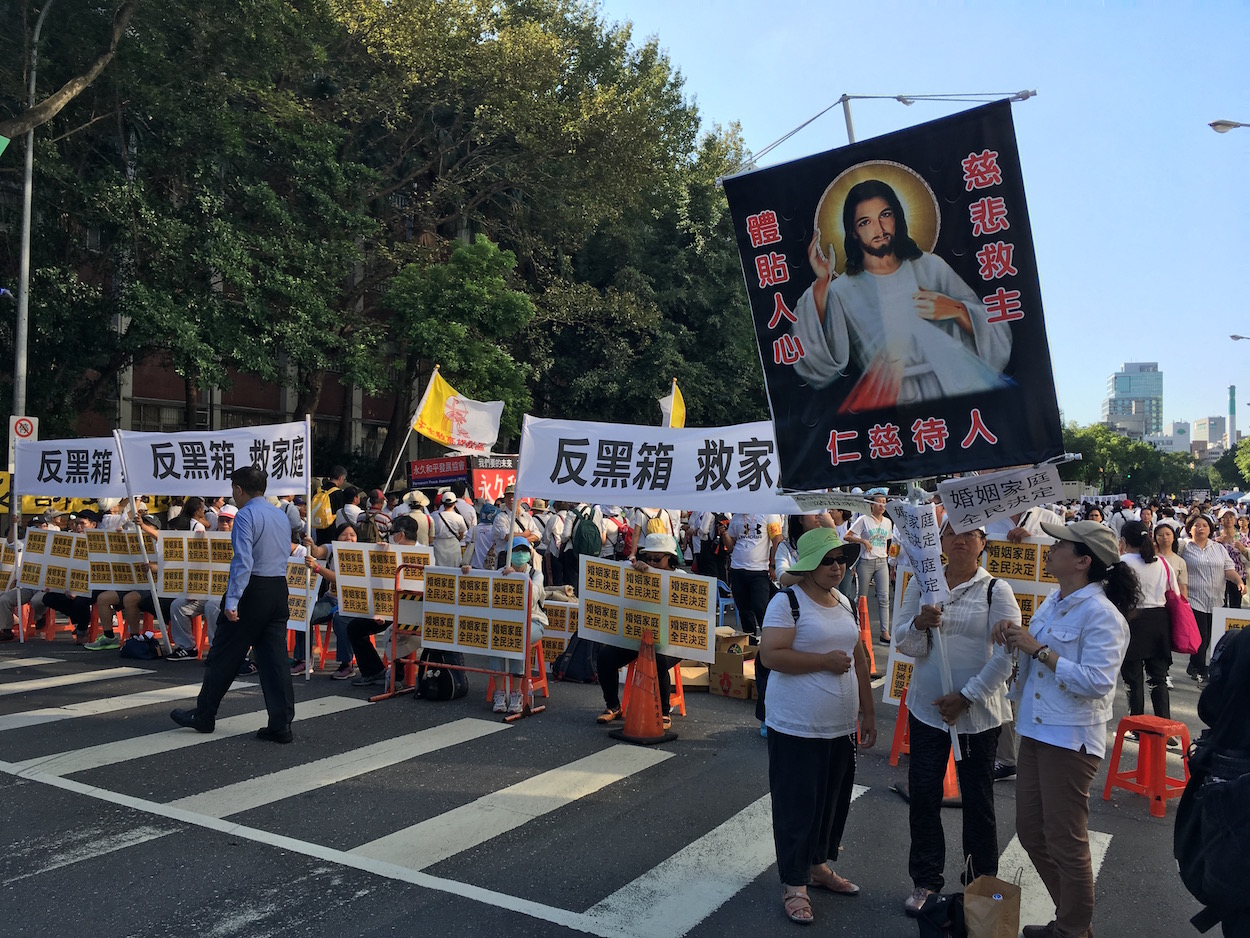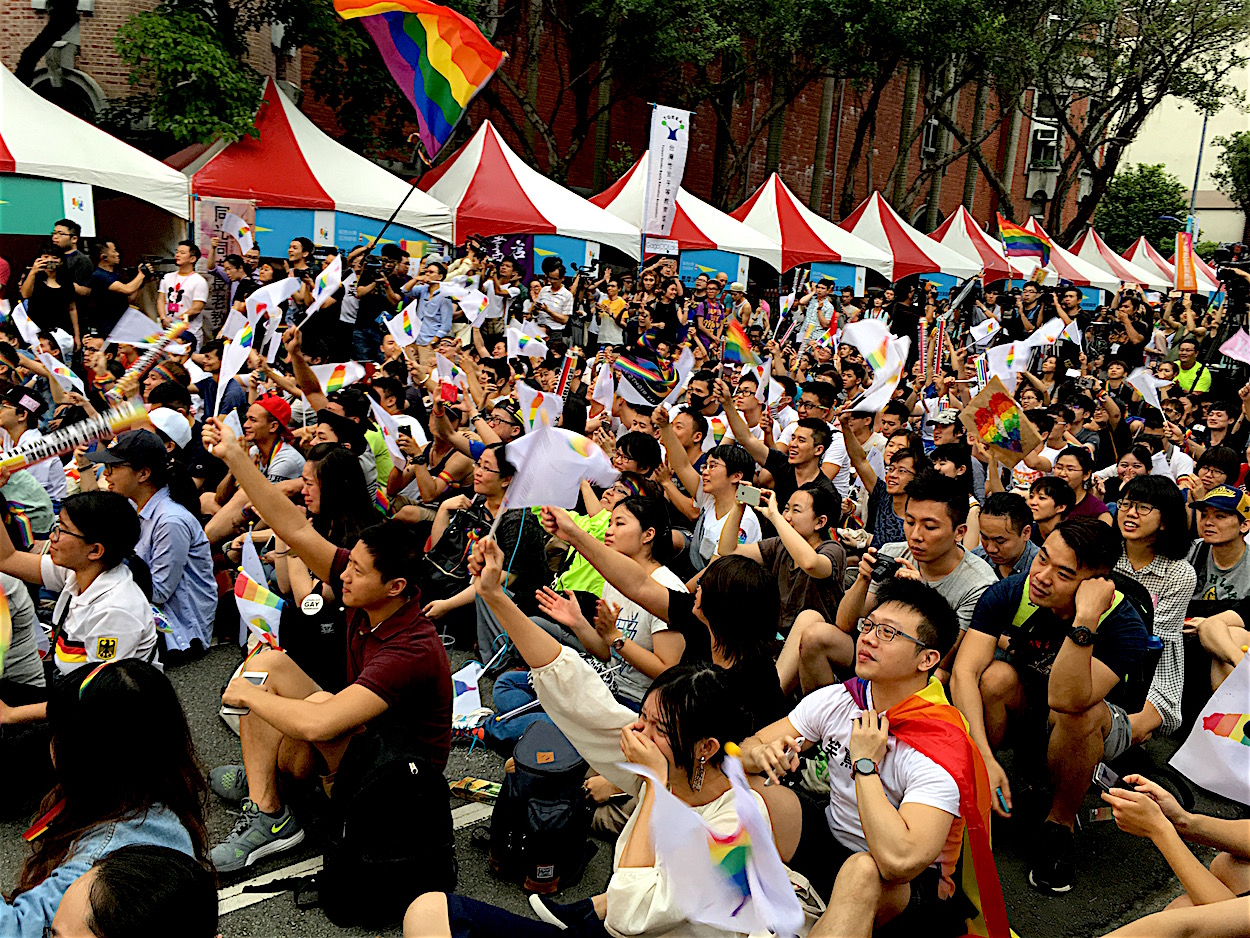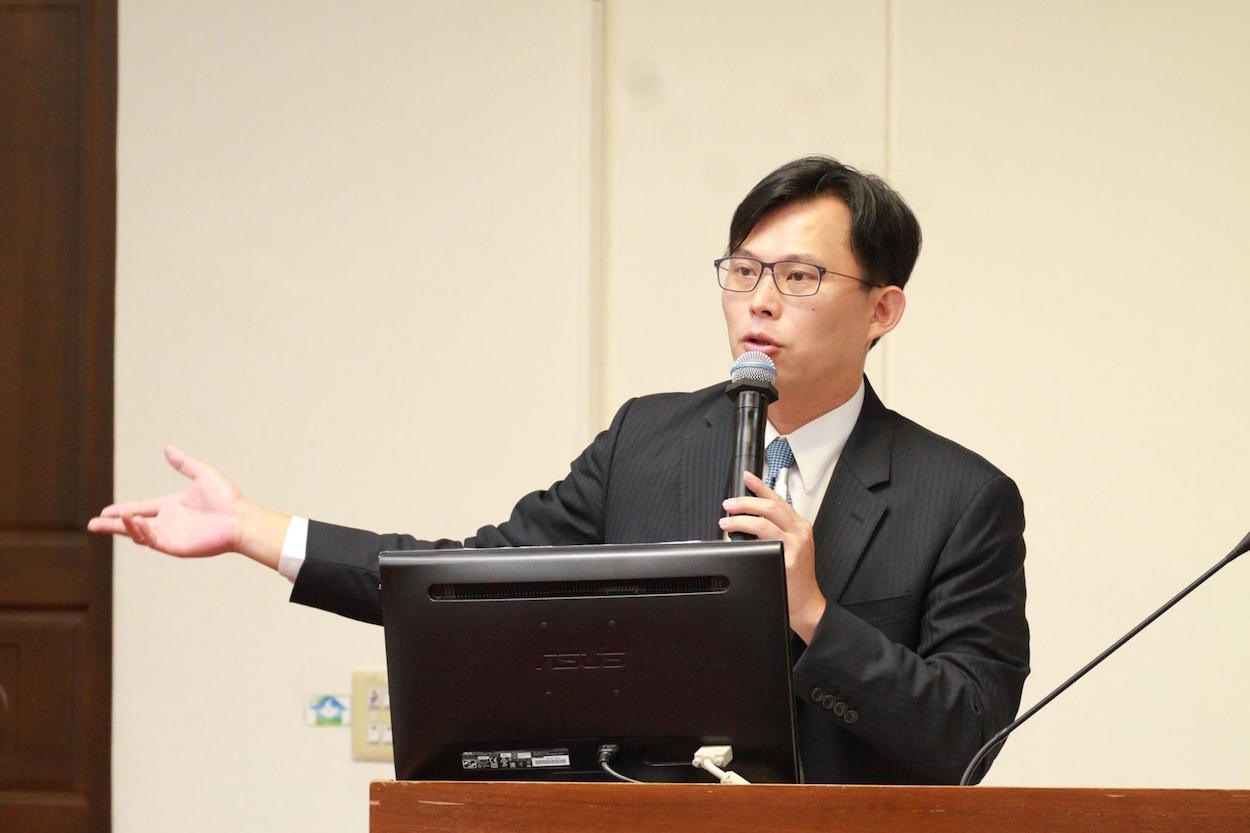by Brian Hioe
語言:
English
Photo Credit: Taiwan Alliance to Promote Civil Partnership Rights/Facebook
WITH THE CENTRAL Election Commission announcing that a referendum against same-sex marriage pushed for by anti-gay groups has been approved, shock and anger has broken out in Taiwan. Referendum advocates will now need to seek reconfirmation of the referendum. However, in itself, it may not be too surprising that anti-gay groups were able to achieve reaching this referendum. In response, an emergency mobilization was held by Taiwanese civil society groups outside the Central Election Commission yesterday at 9 PM after the announcement as led by the Taiwan Alliance to Promote Civil Partnership Rights, though this was only attended by about 100.
Indeed, members of Taiwanese civil society, which is generally politically progressive, have expressed shock at that anti-gay groups would be able to meet the benchmarks needed to hold a referendum. As a result, members of Taiwanese civil society have at times expressed disappointment in Taiwanese society for being on board with the agenda of anti-gay groups enough that their push for a referendum would be successful.
 Anti-gay demonstrators outside the Legislative Yuan in November 2016. Photo credit: Brian Hioe
Anti-gay demonstrators outside the Legislative Yuan in November 2016. Photo credit: Brian Hioe
Perhaps this would be one way in which Taiwanese society is far from as progressive as it is sometimes touted as being, seeing as the Council of Grand Justices ruled in May 2017 that same-sex marriage needed to be legalized by the Legislative Yuan within the next two years. As this would have led to Taiwan being the first country in Asia to legalize same-sex marriage, this led to claims in international that that Taiwan was leading the way for progressive values in Asia, something the DPP played up as a way to distinguish Taiwan from China. However, the DPP has failed to take any actions within the legislature since the ruling and anti-gay groups have built strength in the time since, as observed in the unsuccessful recall vote against NPP chair Huang Kuo-Chang late last year for his support of same-sex marriage.
The three questions which are to be on the referendum are: “Do you agree or disagree that the Civil Code assures individuals to share the right to the committed purpose of managing a life together?”, “Do you agree or disagree that in national education at the junior high and elementary school levels, that the Ministry of Education and schools should not implement education on homosexuality as detailed in the Gender Equity Education Act?”, and “Do you agree or disagree that the Civil Code restricts restricts unions to between a male and female?”
Notably, at present Taiwanese civil society groups are pushing for referendum on a number of issues, including the Tsai administration’s changes to the Labor Standards Act in the past, including a number of the Third Force parties which emerged after the Sunflower Movement.
In particular, pushing for changes to the Referendum Act to lowered the benchmarks needed for to hold a public referendum in Taiwan has been a longstanding demand of Taiwanese civil society, which was successful in changes to the Referendum Act which took place late last year.
 Supporters of gay marriage shortly after the ruling by the Council of Grand Justices was announced. Photo credit: Brian Hioe
Supporters of gay marriage shortly after the ruling by the Council of Grand Justices was announced. Photo credit: Brian Hioe
A public referendum has been seen as one way to settle long-standing issues regarding independence/unification in Taiwan. As such, members of Taiwanese civil society currently continue to push for changes to the Referendum Act to allow for a referendum on the name by which Taiwan is known internationally, seeing as recent changes to the Referendum Act did not allow for changes to the constitution.
However, it is notable that some of the civil society groups that mobilized in demonstration of the announcement by the Central Election Commission have claimed that the actions of the Central Election Commission in allowing the referendum to pass, were unconstitutional because the referendum would supersede the ruling by the Council of Grand Justices.
With the push of anti-gay groups to hold a referendum against gay marriage after their failed attempt using a recall vote to unseat Huang Kuo-Chang, the leader of the NPP, for his consistent pro-gay marriage stance, it was a question for some time as to whether a referendum against the ruling in favor of same-sex marriage by the Council of Grand Justices would be permitted. Nevertheless, it is significant that some civil society groups have adopted the rhetorical stance of claiming the superiority of the judiciary above that of a public referendum as a means to block the referendum on gay marriage. This would contravene other actions by civil society groups which suggest that a direct referendum of the people should supersede the rulings of the judiciary, not only because the judiciary is a small set of individuals as compared to matters which should be decided by society writ large, but also because the the judiciary contains a large number of “dinosaur judges” decidedly out of step with contemporary social values, having been appointed during the era of the KMT’s authoritarian rule and having remained in their posts well into democratization—although it also must be noted that the current Council of Grand Justices were mostly Ma administration appointees but ruled in favor of same-sex marriage nonetheless.
On the other hand, it is generally the case that members of Taiwanese civil society sometimes inveigh against any cause they disagree with as “unconstitutional”. Members of Taiwanese civil society oftentimes evidence a rather flexible view of the law or overly idealistic interpretation of the constitution in claiming almost anything they find to not be progressive as unconstitutional. But perhaps a referendum of the public at large will prove Taiwanese society writ large to be far from as progressive as Taiwanese civil society?
 Huang Kuo-Chang. Photo credit: Huang Kuo-Chang/Facebook
Huang Kuo-Chang. Photo credit: Huang Kuo-Chang/Facebook
Along similar lines, it is also the case that while Taiwanese civil society has long pushed for lower benchmarks to hold a public referendum in Taiwan and for recall votes to take place, it has been a critique that these benchmarks are too low. As a result, Taiwanese civil society may find measures that they have long pushed for being unexpectedly used against them, as observed in that it was a successful push for anti-gay groups to organize a referendum against gay marriage and that the recall vote to unseat Huang Kuo-Chang for his support of gay marriage was nearly successful.
Perhaps these are questions that Taiwanese civil society—particularly the New Power Party, as the only Third Force party with seats in legislature currently—will have to reckon with going forward, then. In all probability, it is indeed that Taiwanese society at large is far from as progressive as Taiwanese civil society is; it should not have been surprising that anti-gay groups would suddenly grow in strength as it became an increasingly real possibility that the Council of Grand Justices would rule in favor of same-sex marriage, but this still caught members of Taiwanese civil society off guard nonetheless. On the other hand, some, such as former student activist turned DPP politician Jiho Chang, have pointed out that referendum is a double-edged sword and that for some issues, if everything was dependent on popular vote, change would not have taken place—Chang’s example being that of ending segregation in America.
Either way the time to celebrate the realization of marriage equality in Taiwan has not yet come, unfortunately. LGBTQ groups may face a fight going forward. But has any struggle for equality ever com without a fight?

